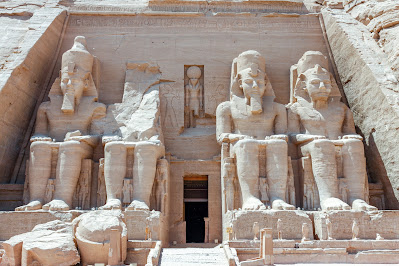by Rav Yosef Carmel, translated by Hillel Fendel
Before Yaakov Avinu (Patriarch Jacob) leaves the Holy Land for the last time and descends to Egypt with his family, G-d appears to him "in the visions of the night [and says to him]: Yaakov, Yaakov… I am the Lord, the G-d of your father; do not fear to descend to Egypt, for I will make you a great nation there. I will descend with you to Egypt, and I will certainly raise you up, and Yosef will place his hand on your eyes" (B'reshit 46,2-4).
The final phrase in that verse is somewhat enigmatic, and has been explained in various ways.
The 12th-century Rashbam wrote that this is a promise that Yosef will take care of all Yaakov's needs in Egypt. The Ibn Ezra, the Rashbam's contemporary almost to the year, explained that this is a promise of a different sort: that Yaakov and Yosef will never again be separated until the day Yaakov dies. "Yosef will place his hand on your eyes" when you pass away, as was customarily done with the deceased.This explanation is supported by the Midrash Sechel Tov on the verse in next week's Torah portion of Vay'chi: "Yosef fell upon his father's face." The Midrash asks: "All of Yaakov's sons did the same, so why does the Torah specify only Yosef? [Answer:] To tell you that this was the fulfillment of G-d's promise to that righteous man [Yaakov] that 'Yosef will place his hand on your eyes.'"
The Midrash also notes that the continuation of the verse in Vay'chi – "'He [Yosef] cried over him [Yaakov] and kissed him'" – teaches that one is permitted to kiss a deceased person up to the time of burial; this is a kiss of final separation."
According to this explanation, the promise that Yosef will place his hand is linked to the previous promise that G-d will raise Yaakov back up – which we know was fulfilled only after his death, when his children buried him in the Holy Land.
According to the explanations of both the Rashbam and the Ibn Ezra, the chronology in the verse is puzzling. The Torah should seemingly have stated that Yosef will look after Yaakov's needs, or be with him up to his death, before stating that G-d will bring his corpse back to the Holy Land – not after!
This is why we find a very different approach in the commentary of Rav Meir Simcha of Dvinsk (the Meshekh Chokhmah, 1843-1926). He writes: "It is likely that by saying that Yosef will place his hand on [Yaakov's] eyes, G-d was telling him that he should not seek to investigate with his intellect and his eyes of logic the purpose and essence of the need to descend to Egypt and then be brought back up… For this is something that should 'close your eyes;' do not delve into the sublime ways of Providence. For who could have foreseen that Yosef's sorrow would be for the purpose of such a favorable end, that he would become ruler in Egypt and will promote correct ideas… This is why your eyes must be covered – i.e., what your eyes see and what your intellect understands…"
According to this understanding of the Meshekh Chokmah, the descent to, and return ascent from, Egypt, connected with his separation from Yosef, are part of the Divine plan that could not be comprehended by human understanding before all its steps were completed.
Note the bolded words above. The descent of Yosef to Egypt, followed by Yaakov and his entire family, was part of the plan to seek to "rectify the world in the Kingdom of G-d." Yosef, as deputy-king over Egypt, sought to effect a "monotheistic" revolution in the idol-worshiping country, and to publicize and "promote the correct ideas." If this would have been known in advance, many questions and doubts would have been avoided.
This explanation jibes very well with the following verses from Psalms:
"He sent ahead of them a man who had been sold into slavery – Yosef. His feet were subjected to fetters; an iron collar was put on his neck. Until his prediction came true, G-d's decree purged him. The king sent to have him freed; the ruler of nations released him. He made him master of his household, governor over all his possessions, to discipline his princes at will, to teach his elders wisdom." (Tehillim 105,17-22)
It is worthwhile for us to remember this nowadays, when it appears that "the whole word is against us." We must ever keep in mind that the ultimate goal is to unite all of mankind around the concept of "belief in One G-d," which emanated from and is centered in Jerusalem, the eternal capital of the Nation of Israel.

No comments:
Post a Comment